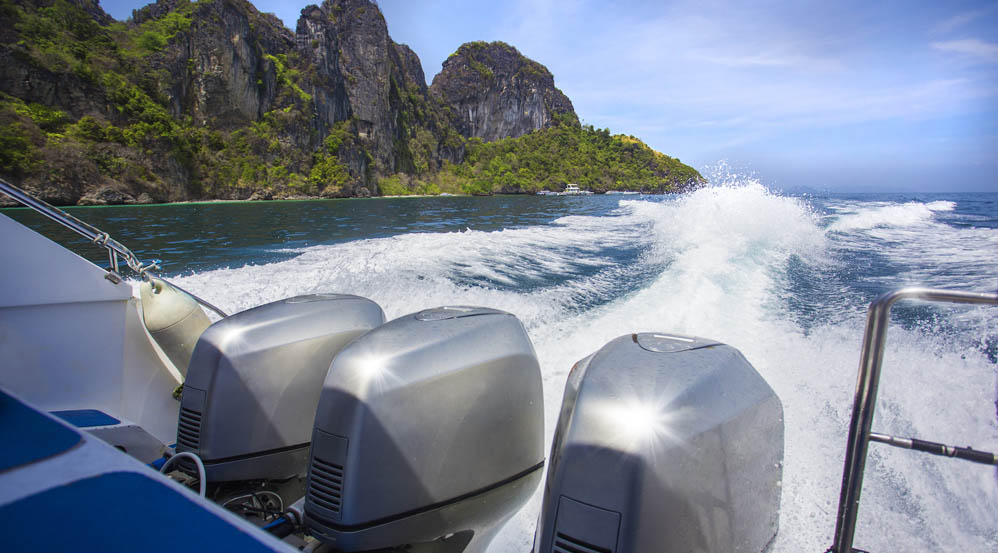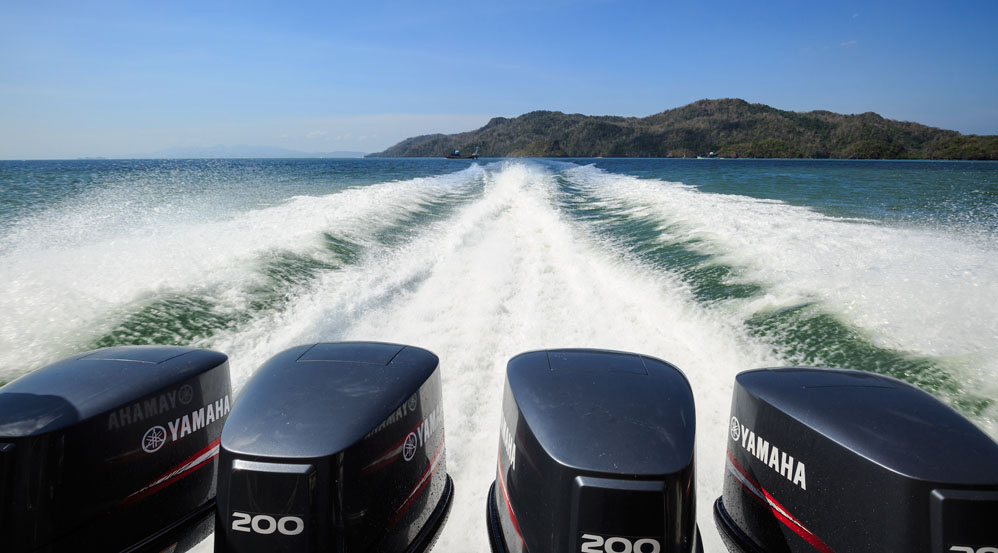- November 26, 2024
- Boat Maintenance
- Exploring the Difference: Marine Engines for Ocean vs. Freshwater
Marine engines are the heart of any vessel, providing the power to traverse waters, whether it’s the vast expanse of the ocean or the calm serenity of a freshwater lake. While all marine engines serve the same fundamental purpose, their design and maintenance requirements can differ significantly depending on the environment they operate in. Here, we’ll dive into the key distinctions between marine engines suited for ocean use versus those optimized for freshwater.

Corrosion Resistance: A Top Priority for Ocean Engines
Ocean Environment
Saltwater is highly corrosive, posing a major threat to marine engines and their components. Ocean-going engines are designed with materials that resist corrosion, such as stainless steel, bronze, or coated aluminum. Additionally, many of these engines include sacrificial anodes to protect critical components from galvanic corrosion.
Freshwater Environment
In freshwater, corrosion is less aggressive, allowing for a broader range of materials to be used in engine construction. While corrosion resistance remains important, engines operating in freshwater do not typically require the same level of protective coatings or specialized materials as ocean-going models.
Cooling Systems: Adapting to Water Quality
Ocean Environment
Ocean engines often use a closed-loop cooling system where the engine’s coolant circulates through a heat exchanger cooled by seawater. This design minimizes the contact of seawater with sensitive engine parts, reducing corrosion risks.
Freshwater Environment
Freshwater engines can utilize open-loop cooling systems, where the water from the lake or river is directly used to cool the engine. This simpler system works effectively in environments where water quality is high and free from corrosive elements like salt.
Power Requirements and Efficiency
Ocean Environment
Engines for ocean vessels often need to handle rougher conditions, higher salinity levels, and longer trips. As a result, they tend to have higher horsepower and are built for durability and fuel efficiency over extended use.
Freshwater Environment
Freshwater engines are often used in smaller boats for leisure activities, fishing, or short trips. These engines can prioritize ease of maintenance and lower power outputs while still delivering reliable performance in calmer conditions.
Maintenance Considerations
Ocean Environment
Saltwater operations require rigorous maintenance routines. Ocean engines must be flushed with fresh water after every use to remove salt deposits. Regular inspections for corrosion, impeller wear, and anode replacement are essential to ensure longevity.
Freshwater Environment
Freshwater engines require less frequent flushing and have lower overall maintenance demands. However, regular checks for debris, sediment buildup, and biofouling are still necessary, especially in murky or plant-rich waters.
Engine Size and Application
Ocean Environment
Ocean vessels, ranging from fishing trawlers to large yachts, often rely on inboard diesel engines due to their power and efficiency over long distances. These engines are designed to withstand harsh environmental conditions.
Freshwater Environment
Freshwater boats, such as pontoons and small speedboats, often use outboard engines. These are lighter, more compact, and easier to maintain, making them ideal for the recreational activities typical of lakes and rivers.
Environmental Impact
Ocean Environment
Engine designs for ocean use must comply with stricter emissions regulations to minimize their impact on marine ecosystems. Advanced technology like catalytic converters and exhaust gas recirculation (EGR) is often incorporated.
Freshwater Environment
Freshwater engines also adhere to environmental standards, but the focus is more on preventing the spread of invasive species. Flushing and cleaning systems are critical to avoid cross-contamination between bodies of water.

Key Takeaways
Choosing the right marine engine depends largely on where you plan to operate your vessel. Engines for ocean use prioritize corrosion resistance, durability, and power, while freshwater engines focus on simplicity, lighter construction, and ease of maintenance. Understanding these distinctions ensures that your boat is equipped for optimal performance and longevity, no matter where your adventures take you.
